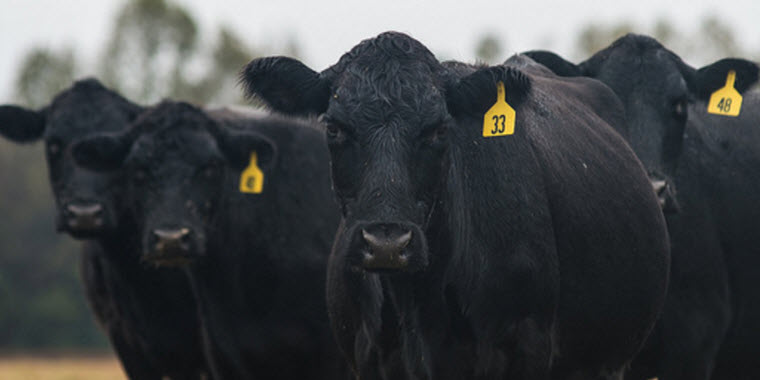Agriculture Secretary Tom Vilsack announced progress on the U.S. Department of Agriculture’s (USDA) comprehensive approach to address the many, complex competition issues in agricultural markets and create a fairer playing field for small- and mid-size farmers. In support of these efforts, USDA has finalized the first in a series of rules under the Packers and Stockyards Act, which is aimed at helping contract poultry growers compete more effectively and better understand the terms of their agreements with major processing companies.
USDA also announced updates on several other efforts the department has undertaken as part of President Biden’s historic Executive Order on Promoting Competition in America’s Economy. These include a notice to seed companies clarifying expectations that they share clear and meaningful information to farmers about the seed varietals they are purchasing; clarifying the domestic origin requirements a farmer must fulfill to sell meat products to meet USDA’s food purchases for nutrition assistance programs; and creating a new, senior- level career position to formalize and enhance implementation of key competition policy priorities across the Department.
“From day one, President Biden has been committed to a robust and effective set of Packers and Stockyards regulations that will bring better transparency and more fairness to America’s producers and growers,” said Agriculture Secretary Tom Vilsack. “This rule and the other actions we are announcing today bring transparency and accountability to transactional relationships across the poultry industry, seed industry and federal procurement, and they are critical steps in USDA’s competition and farmer fairness agenda. They are also a powerful complement to the many other steps USDA is taking, from investing $1 billion in our supply chains to enhancing our labeling regulations — to create a fairer marketplace so more producers have the tools for success.”
Competition and Innovation in Seeds
USDA continues to deliver on its commitments to promote fair competition and innovation in seeds. This week, the Agricultural Marketing Service (AMS), the agency leading the Farmer Seed Liaison initiative, issued multiple letters to seed companies reiterating their obligation to comply with the Federal Seed Act’s varietal labeling requirements for agricultural and vegetable seed shipped in interstate commerce and highlighting the importance of establishing best practices under the March 6 Notice to Trade. As part of this effort, AMS is holding seed companies accountable to the best interests of their farmer stakeholders by requesting they examine how they are complying with the Federal Seed Act and USDA’s Notice to Trade in providing variety transparency to farmers at the point of sale, disclosing the variety to growers usually at the time of purchase and no later than the commencement of shipment. USDA recognizes the variety of seed farmers are purchasing under different brand names is important to them and enables a more competitive, innovative seed landscape.
Updated Domestic Origin Requirements for USDA Purchases of Meat Products
AMS is clarifying that meat products must be from animals that are born, raised, and slaughtered in the U.S. to meet the domestic origin requirements for purposes of USDA purchasing. AMS procures food products of domestic origin for use in nutrition assistance programs and regularly evaluates the effectiveness of its food purchase programs. Upon review, the guidelines for procuring beef, pork, lamb, and bison products were not as clear as other commodities. Last year, AMS purchased $800 million worth of meat products. This clarification to the domestic origin requirement will ensure U.S. producers enjoy reap the full benefit of USDA purchase programs and recipients of nutrition assistance programs benefit from domestically-produced meat products.
Establishing a Chief Competition Officer at USDA
USDA has created a new, senior- level career position at the Agricultural Marketing Service to support its multiple efforts to address the many, complex competition challenges in the agricultural sector. Located in the AMS’s Administrator’s Office, the new AMS Chief Competition Officer will formalize and enhance implementation of key competition policy priorities at AMS and support efforts across the Department, including Packers & Stockyards Act enforcement, seed transparency and competition, partnerships with State Attorneys General. The Senior Executive Service position will work closely with the current Biden-Harris USDA’s leadership on competition policy and will also serve as a career liaison to other federal agencies working to tackle competition issues using a whole-of-government approach.
Transparency in Poultry Grower Contracting and Tournaments
The rule, requires Live Poultry Dealers —typically large processing companies — to give critical information about terms of their agreements to the poultry growers with whom they contract to raise birds. The final rule requires a “Live Poultry Dealer Disclosure Document” that provides growers with information they need to have a better understanding of realistic outcomes they can expect before making important financial decisions, such as capital-intensive facility improvements or taking out loans. In particular, the rule requires that dealers disclose earnings for growers by quintile, establish minimum flock placements, and explain variable costs growers may incur and how companies handle certain important circumstances such as sick flocks and natural disasters. It also establishes an accountability and governance framework that must be certified by the poultry company’s CEO.
###
USDA


